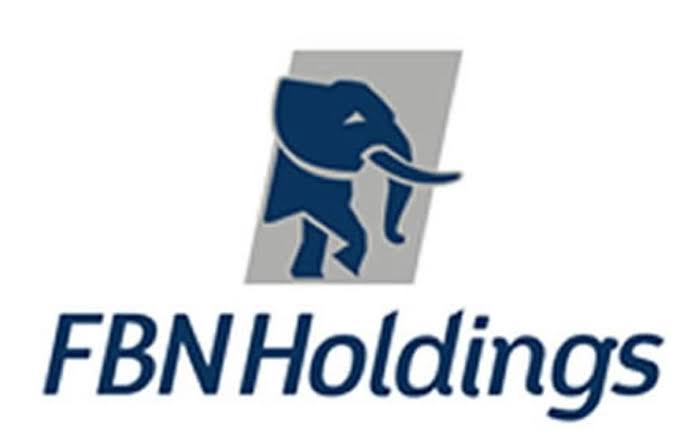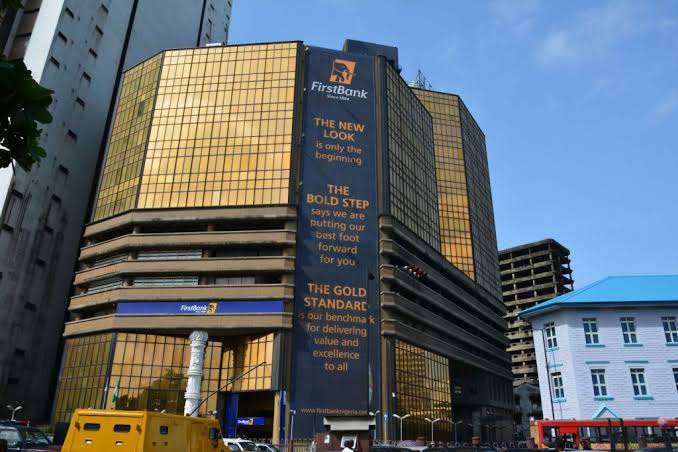Business
First Holdco loses steam, Profit plunges 18% in Q1, 2025

First Holdco Plc, formerly known as FBN Holdings, has recorded a disappointing start to 2025 as its net profit dipped by 18 per cent year-on-year in the first quarter, reflecting what analysts described as the company’s most significant setback since its rebranding.
The group’s underwhelming performance has reignited concerns over its competitiveness and internal stability, especially in the wake of last year’s leadership tussles involving key figures like Oba Otudeko and former CEO Adesola Adeduntan.
According to its unaudited Q1-2025 financial statement, the elephant-branded financial giant posted a profit after tax of N167.4 billion, down from N208.3 billion in the corresponding period of 2024. The drop was mainly driven by a sharp contraction in non-interest income, which overshadowed the group’s strong gains in core lending activities. Gross earnings edged up marginally by 3.3 per cent to N729.3 billion from N704.2 billion in Q1-2024, signaling weak overall topline growth.
Despite a solid 61 per cent increase in net interest income, rising to N365.2 billion from N226.8 billion, analysts say the lackluster performance in other income lines signals trouble. Non-interest income nosedived by a staggering 60 per cent to N104 billion from N260 billion in the same period last year. The steep decline in non-interest income—a key revenue source from fees, commissions, and trading—raises red flags about the bank’s ability to diversify earnings and maintain resilience in a high-inflation and interest-rate environment.
Analysts from CardinalStone Securities noted that the weak non-interest performance effectively erased the gains from core lending activities, limiting gross earnings growth. Further compounding the bank’s woes was a 16.4 per cent jump in operating expenses, which rose to N245.3 billion in Q1-2025, compared to N210.8 billion a year earlier.
This rise was attributed to increased personnel costs, regulatory levies such as AMCON and NDIC contributions, as well as elevated marketing and promotional spending. The bank’s cost-to-income ratio consequently spiked to 52.3 per cent, a signal of operational inefficiencies creeping in.
Although impairment charges declined modestly, resulting in a lower cost-of-risk of 1.7 per cent, this was not enough to buffer the impact of higher expenses and plummeting non-interest income. Gross loans expanded by 11.1 per cent year-on-year to N9.7 trillion, reflecting the group’s aggressive lending stance even amid earnings pressure.
The aftermath of the 2023 boardroom power struggle, where Oba Otudeko’s strategic re-entry and Dr. Adesola Adeduntan’s controversial resignation stirred corporate governance debates, appears to still cast a shadow.
Stakeholder confidence, while improving, may yet be shaken again by this earnings miss, analysts warn. Performance indicators were further dragged down, with return on average equity (ROAE) slumping to 24.2 per cent from 44.5 per cent in Q1-2024. Similarly, return on average assets (ROAA) fell to 2.5 per cent from 4.2 per cent, underlining the deterioration in profitability metrics.
Boniface Okezie, a prominent shareholder activist, has called on First Bank to regain its strategic focus following a disappointing first-quarter performance that saw its profit drop significantly year-on-year. “First Bank remains a strong and historically resilient institution, given its legacy and achievements over the years.
However, it must work harder to maintain stability and rebuild stakeholder confidence,” Okezie said.
He expressed concern that despite a solid performance in the previous financial year, the latest results signal a worrying trend that could undermine the bank’s position if not addressed promptly.
“Instability is dangerous for any financial institution — even large banks can fail, as we saw in the case of Afribank,” he noted. “First Bank must put its house in order to withstand current economic pressures and avoid similar pitfalls.” Okezie also highlighted shareholder dissatisfaction over dividend payouts, pointing out that First Bank’s 60 kobo dividend pales in comparison to Fidelity Bank’s payout of over 200 kobo.
On the ongoing recapitalization drive mandated by the Central Bank of Nigeria, he acknowledged the bank’s recent rights issue but urged it to explore additional strategies to meet the ₦500 billion target. “While the rights issue is a good step, First Bank must remain proactive. That said, I believe the bank has the potential and the resources to meet the recapitalization threshold,” Okezie concluded.
As First Holdco attempts to steady its ship amid a tough operating environment and leadership legacy challenges, analysts stress the need for management to rebuild investor confidence, reinvigorate non-interest income streams, and restore cost discipline. Without swift action, the bank risks ceding more ground to its more agile and better-positioned peers in Nigeria’s competitive financial services landscape.




